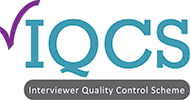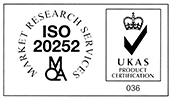Critical Research is proud to have worked with Ignition House and Roston Smith to highlight continuing obfuscation of charges in the pensions industry.
Recent UK consumer research conducted by Critical for Ignition House has found six in ten pension savers were not aware they were paying charges on their retirement savings. The research has supported calls for pension savers to be shown charges on their annual pension statements.
Our Research:
In July 2021, Critical conducted 1,016 interviews amongst a representative sample of UK adults aged between 22 and 65.
Participants were shown a number of materials including annual pension statements.
We utilized our pinboard technique, which allows participants to select anywhere on the screen that particularly grabs their attention. A pin with a comment can be attached to the image.
When aggregated not only does this generate a wealth of information, it shows hotspots of particular interest.
The pinboard technique is very enlightening for any comms testing, not just pensions statements.
Below are the actual pinboard analyses from this research:
| All Pins | Those leaving a negative comment |
The Findings:
● Members are more interested in the value of their pension savings than the charges they pay
● The majority of members weren’t aware that they were paying charges but, equally, they were not particularly surprised to see them
● Members want pension providers and schemes to show and explain the charges they pay simply and consistently on all the annual pension statements they receive – which they say will build trust
● If providers and schemes couldn’t provide individual members charges, members would think they were untrustworthy – transparency leads to trust
The Governments Response:
In October’s budget, chancellor Rishi Sunak said: “We will consult on further changes to the regulatory charge cap for pension schemes, unlocking institutional investment whilst protecting savers.”
The regulatory charge cap is the maximum limit that providers can charge pension savers.
Rishi Sunak claims changes would lead to ‘higher return investments’, though the move has certainly raised concerns that pension savers will face higher fees.
The pensions charge cap (0.75%), was introduced in 2015 in order to protect pension savers with automatic enrolment workplace pensions from high fees.
The autumn budget did not give any indication as to when the pensions charge cap would change if it was to do so. The last time the government conducted a review on this was in January 2021, and no changes were made.
For further information about pinboard analysis please contact James.
For more information about this research please follow these links:
Links to this research in the press:



